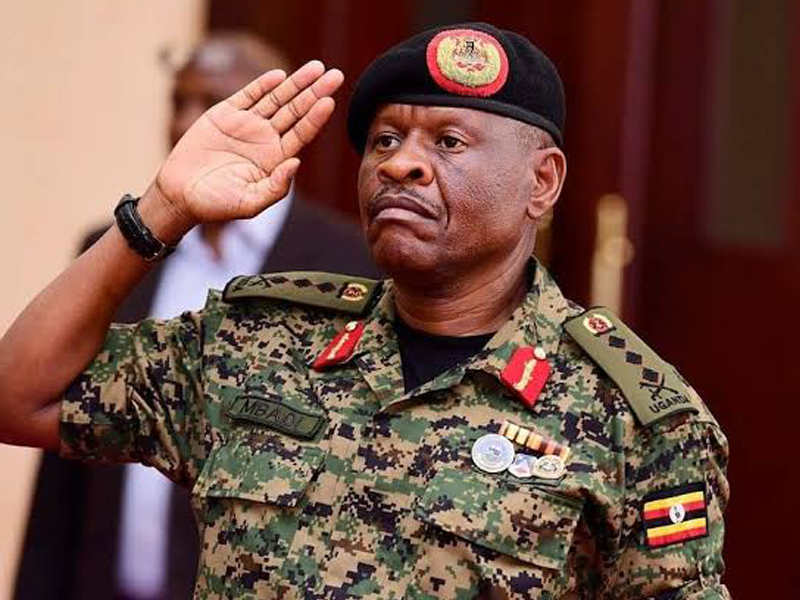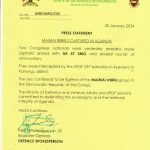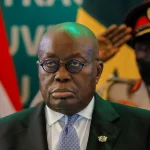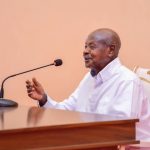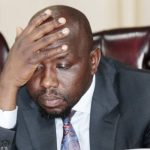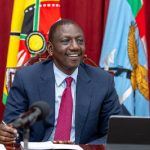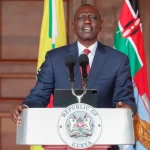Dear readers, on behalf of Uganda Peoples’ Defence Forces (UPDF) and on my own behalf, I take this opportunity to congratulate you on this auspicious 61st Independence Anniversary in the year 2023, themed; – “Sustaining a United and Progressive Nation: Taking Charge of Our Future as a Free Nation.”
It is a greatly befitting theme, with overarching comprehension especially given the linkage amongst the three concepts; the unity of a nation that has the potential to lead to national progress and this in turn has the potential to empower the nation to be in charge of most of its affairs, with ability to protect its interests and defend the freedom it defines it is a greatly befitting theme with overarching comprehension, especially given the linkage amongst the three concepts; the unity of a nation that has the potential to lead to national progress and this in turn has the potential to empower the nation to be in charge of most of its affairs, with ability to protect its interests and defend the freedom it defines in the usually highly contested and congested international relations arena.
In the same way, contemporary debates on Universalism versus Relativism, as relates to global freedoms of nations and their peoples have tended to centre on the question of whether or not these freedoms and rights of nations are segregatively a preserve in our global arrangement with some specific hemispheres “ordained by nature” to keep other hemispheres under the yoke of subservience, either by way of glaring colonialism or its other various forms, camouflaged evolutions and manifestations; including predatory imperialism.

Our African countries have a rich repository of experiences on the above dichotomies, in line with writer and philosopher George Santayana, that “those who do not learn from history are doomed to repeat it.” As verily said, to know one’s destination, it is always wiser to invoke one’s history to keep any valuable experiences as “lessons learnt”, especially regarding our theme, the balkanization of Africa, and the continent’s delineations it is today.
For the past two centuries or so, it has been the norm to speak of nation-states as the primary units of territory, identity, and citizenship for the world’s population. Indeed, it is difficult to conceive a world without these since the nation-state has gradually become the dominant vehicle for ordering and governing world politics, replacing polities of the old, that were governed through other principles of legitimacy such as the dynastic monarchies, theocratic states, colonial empires, etc.

As a political model, the nation-state ought to fuse at least two principles: the principle of state sovereignty, and the principle of national sovereignty. National sovereignty is based on the moral-philosophical principle of popular sovereignty, according to which states belong to their peoples. In this regard, therefore, one would expect that as the global system interacts under the aegis of international relations, it does so in a mutually respectful and beneficial manner.
The most agreeable principles to guide such state-to-state interactions would then be: – collaborative as opposed to exclusionary; partnerships-based as opposed to dominance/reliance; mutually beneficial as opposed to zero-sum; and consultative as opposed to confrontational and impositional. If only we can strike this global bargain in the ears of our partners, and couple it with a serious sense of own national consciousness and patriotism, African Countries then can score highly towards sustaining united and progressive nations.
These guiding principles would also play a compensatory role for Africa, given the current vulnerability her nation states have for long suffered due to the fact that most of the boundaries were defined newly and strangely curved out blocks of territory, that lacked the basis of African realities, precipitating many foresighted natives to later in ideologue identify as pan-Africans, rather than as nationals of arbitrary artistic colonial creativity.
The above notwithstanding, as we agree to embrace the outcomes of history and fate, a common ground must be struck with the outside world, characterized by goodwill. This should then be the basis of the doctrine of the tripartite, that our countries must be assisted to build their own internal capacity to deal with internal problems since we know our problems best. Where the magnitude of the problem transcends country capacity, let the region come in to plug the existing capacity gaps; and later, the international effort, in this sequence. This way, our countries would not be doled out on fish daily in perpetuity; but would be taught how to fish, assisted with fishing nets, then be taught how to repair those nets and finally be taught how to make the nets ourselves.
The aspiration and necessity of us “Taking Charge of Our Future as a Free Nation” requires us to fully appreciate the social, political, economic, and even defence and security effects of the balkanization of Africa. For example; Africans’ sovereignty was officially usurped; the partition of the continent crippled the indigenous systems e.g. the replacement of the justice system that was more reconciliatory than retributive; the poor demarcation of the territories becoming a contributing factor to the various (useless) border disputes; and lastly, as the partition of Africa laid the foundation for colonization, colonization further led to the perpetual and shameless exclusionary exploitation of the natural resources to the utter benefit of the outside world.
Therefore, one of the most effective approaches to effect the desired assurance of taking charge of our future and freedom is by way of regional integration. It can be argued that first and foremost, integration assists nation-states to “merge/expand” their “nation-statehood” and while mixing the most favorable expositions of international relations theories, a customized outcome can be achieved.
Under the precepts of the Realist Theory, if proper integration is done, the region can self-preserve and gain such power to greatly leverage the socio-economic and political imperatives highly disrupted in those preceding times. Premising on Liberalism would enable us integrate freely through a coalition of the willing, utilizing regional cooperation to further respective interests and avoidance of brute military force. Precepts of constructivism would allow for our nation’s belief systems—historical, cultural and social to remain intact and respected by all. Integration then would create space for concepts like regional identity, African solutions to African problems, Pan Africanism, Ubuntu (Obughuma), etc.; while with the Post-colonialism Theory, integration would be the best vessel to remind us of our fate at the hands of foreign subjugation, allowing us to bond out of our experience.
Proper Regional integration would then allow us to improve market efficiency; share the costs of public goods or large infrastructure projects; decide policy cooperatively and have an anchor to reform within the local circumstances; have a building block for global integration; and reap other non-economic benefits, such as common defence, peace and security.
Inducing, and finally taking charge of our future as a free nation cannot be delegated. It is our cardinal responsibility as Ugandans and this requires sacrifice, concerted effort and conscious discipline by all the citizens. Critical here and specific to Uganda is the need to shed off what writers have come to brand as “the 40 bad behaviours that deter Ugandans from Succeeding” which include interalia, – the tendency to waste time on non-issues, dishonesty, greed for quick money, disinterest in work and quest to depend on others, failure to plan, and a lesser sense of duty and patriotism.
H.E the President and C-i-C has himself emphasized the role of every Ugandan in the emancipation of the country within the regional mantra, that the duty towards one’s country is enormous that it requires the citizenry’s total commitment and ideological re-discovery, by way of the four principles (patriotism, Pan-Africanism, socio-economic transformation and democracy) with patriotism and Pan-Africanism being able to re-orienteer Ugandans from following the politics of identity to following the politics of legitimate needs including peace and wealth creation. Mindset change comes in handy and in tandem, entailing doing what one ought to do using new orientations of the mind.
It is the worst form of irony as H.E the President has always emphasized, for citizens to become experts in non-productive enterprises such as diversionary politicking from January to December while our competitors are already and seriously specialized in Space Technology and have built capacity and capability to look at us from space with precision.
The UPDF has on its side effectively met its part of the constitutional mandate in the form of the functions of the Defence Forces as per Article. 209 of our constitution. The force in partnership with our wananchi has effectively preserved and defended the sovereignty and territorial integrity of Uganda; cooperated with the civilian authority in emergency situations and in cases of natural disasters; fostered harmony and understanding between the defence forces and civilians; and engaged in productive activities for the development of Uganda.
Recognizing the nexus between security and development, the rest of the population needs to collectively utilize the abundant security, stability and tranquility not for all-time dancing “paka chini” but to profitably allocate the time available to wealth creation for social economic transformation. This way we will be able to sustain a united and progressive Uganda within a wider regionally integrated framework while we take charge of our future as a free nation within the highly contested global arena.
FOR GOD AND MY COUNTRY.
by;
GENERAL WM MBADI RS, NIM, fwc (US), psc (K), MSS, (MP)
CHIEF OF DEFENCE FORCES

